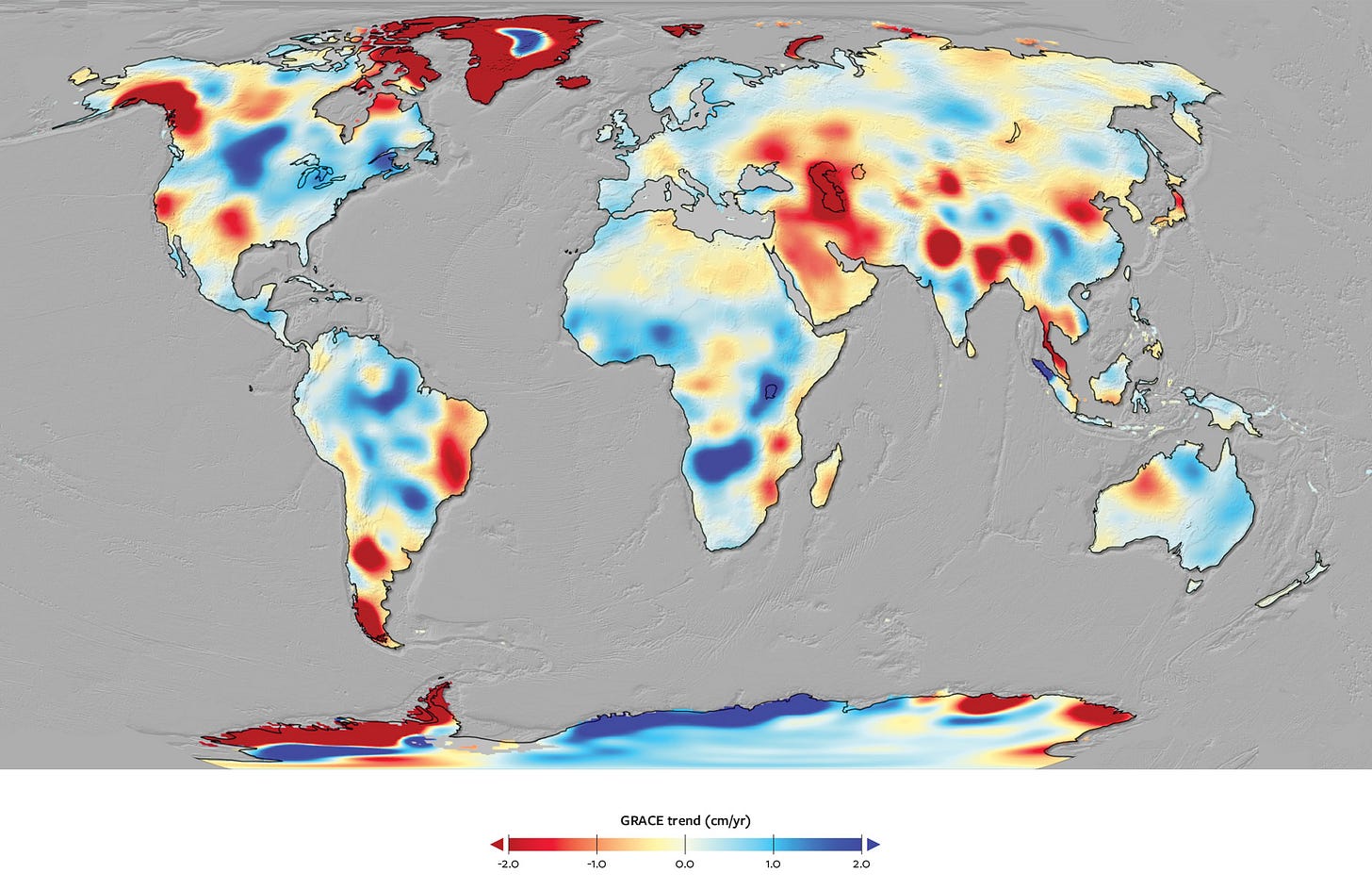Water is becoming an increasingly popular commodity, and fast
Water is what makes this planet so active, diverse, and rich. It is the life force of our ecosystem, supporting the growth of a variety of environments. The United Nations highlights the greater influence and impact of water, stating:
“Water is at the core of sustainable development and is critical for socio-economic development, energy and food production, healthy ecosystems and for human survival itself. Water is also at the heart of adaptation to climate change, serving as the crucial link between society and the environment.”
Having what feels like a constant supply, it seems to be an abundant resource. It covers 71% of the earth’s surface, encompassing a range of around 326 million cubic miles. Similarly, our thunderhead clouds are capable of holding two billion pounds of water.
However, 97% of the earth’s water is found in the oceans, and thus saltwater. Apart from sustaining marine life, this water cannot be used for agricultural or industrial purposes, nor consumed directly. In fact, of the 326 million trillion gallons of water available on the planet, only 3% of it is fresh water. Hard to visualize? Picture this: If the world's water supply were only 26 gallons, our usable water supply of fresh water would be only about half a teaspoon.
It comes as no surprise then that water is attracting the eyes of investors and the world of finance, attracting the status of a commodity within the market. A commodity can be defined as a raw material or an agricultural product that can be bought and sold, at times on an exchange. Back in 2020, the Chicago Mercantile Exchange announced its first-ever futures for water as a commodity, where investors could buy a predetermined price of water that could be used in the future. What was once considered a free and public good has now become worthy of an investment, a signal of what is to come.
In that case, we have to be careful and conservative with how much fresh water we are using. How are we doing on this? Our world consumes, on average, around 4 trillion cubic meters of water every year. The most consuming industries are the agricultural sector at 70% of freshwater, leaving 20% for industrial use and 10% for domestic use. This is putting immense pressure on water supplies, with some regions already suffering from lower levels of water. Below, the map created by the NASA Gravity and Recovery Experiment (GRACE) represents the rates at which all regions on Earth are gaining or losing water.
Yet with technological advancement, there remains hope. Desalination of ocean water remains a key tool for countries faced with unstable water security, specifically in the Middle East. According to scientific research, around 16,000 desalination plants produce nearly 95 million m3/day of desalinated water for human use, of which 48% is produced in the Middle East and North Africa region. Desalination plants produce high emissions and large quantities of brine as a byproduct, but the process is getting increasingly efficient; more organizations are using solar and wind power to desalinate their water, and are finding creative and innovative ways to reuse the brine, such as making sodium hydroxide.
Rethinking Climate Change Accountability
Hello! This is Taarini, and today, I'd like to share something a bit distinct from my usual content in this column. While I've previously discussed informed consumer choices based on sustainable materials and other factors, today, I'd like to offer a more comprehensive view of how these insights relate to the larger context.
In the contemporary approach to sustainability, certain principles play a pivotal role in charting a course toward a more environmentally conscious economy. However, the dialogue concerning climate change has long been overshadowed by an apparent gap between individual responsibility and corporate responsibility. In the current economic framework, a trend has arisen where ecological concerns are often framed as individual responsibilities, which has become a significant barrier to effectively addressing climate change and adapting to it.
The culture of profit-driven markets nurtures the idea of individual responsibility for addressing environmental issues. Within this framework, consumers are persuaded that they are solely responsible for stimulating change through their consumption choices. The pervasive notion that addressing environmental challenges hinges on individual actions serves as a distraction from the bigger picture. Participating in actions like resource conservation, opting for sustainable products, or reducing one's environmental footprint, while admirable, does not offer a holistic solution for addressing the structural aspects of environmental problems. Furthermore, this fallacy disregards the glaring disparities in consumption patterns, often shielding the major contributors to these issues from public scrutiny.
The individualization of environmental problems obscures the essential truth that genuine progress necessitates collective endeavors that transcend individual consumer behavior. Striving for a more sustainable future falls short in addressing the intricate socio-ecological issues at hand, often simplifying them into mere labels and branding while transferring the responsibility of environmental action to consumers. Consequently, it conceals the necessity for more far-reaching reforms, particularly regarding the extent of individual consumption and the activities of corporations.
Addressing environmental challenges demands a profound shift in our understanding of development and economic growth. It necessitates a complete reimagining of our economic system with an emphasis on systemic transformation. The pivotal transition lies in redirecting the environmental narrative from individual responsibility to collective effort. This transformation commences with the recognition that the current form of economic growth perpetuates the status quo.
That's what I wanted to chat about today, and I'd love to hear your thoughts on it! I'll be back in the next edition with more comparisons of choices you can make. While I'm away, I recommend reading Green Consumption, Ecolabelling, and Capitalism’s Environmental Limits by Ivan R. Scales who provides valuable insights into the complex relationship between consumer choices, environmental responsibility, and the limitations of our current economic system. Happy reading!








